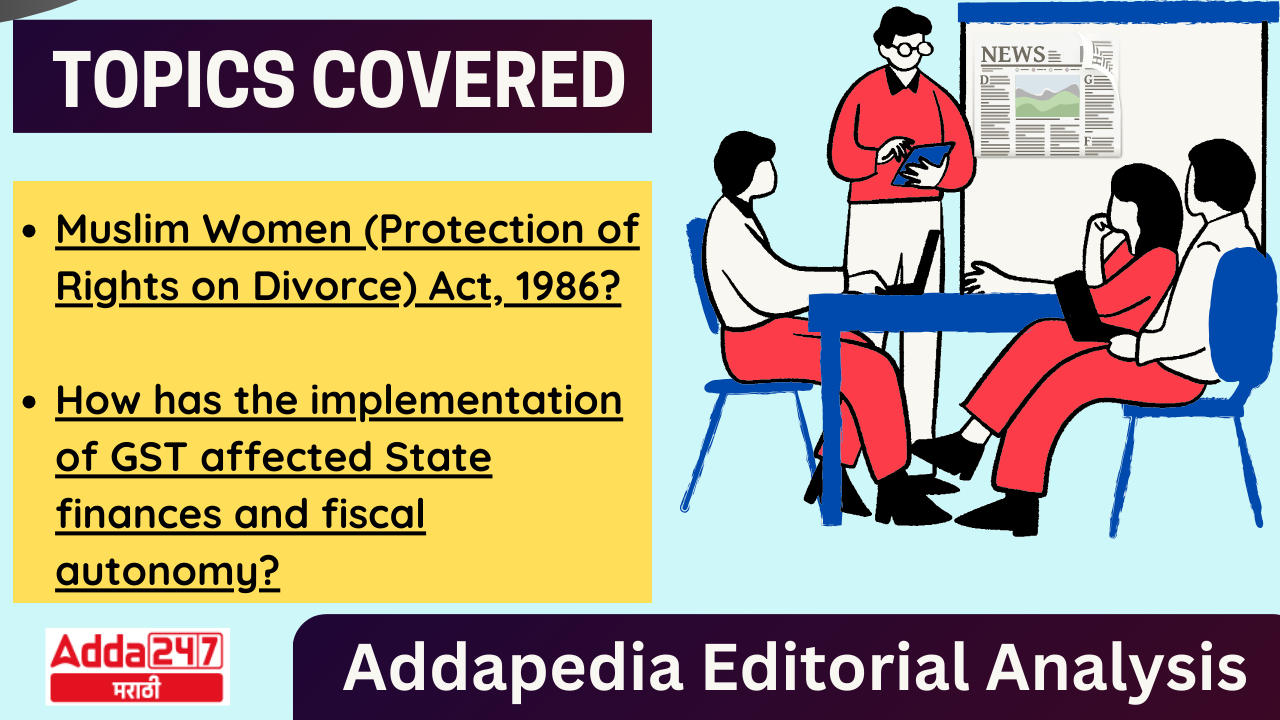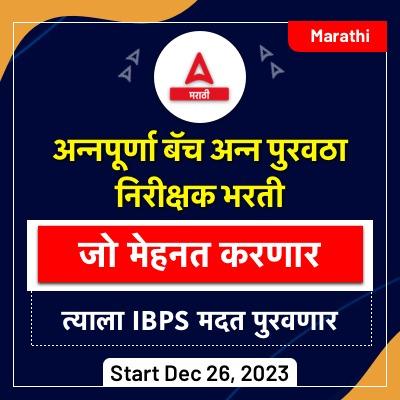Table of Contents
Date: 12 July 2024
Secular Remedy
The Supreme Court clarified that divorced Muslim women can seek maintenance under the Code of Criminal Procedure (CrPC)
- This right exists in parallel with the provisions of the Muslim Women (Protection of Rights on Divorce) Act, 1986
What is the background and significance of the Muslim Women (Protection of Rights on Divorce) Act, 1986?
- The Act was enacted in response to the Shah Bano case (1985) which allowed divorced Muslim women to seek maintenance under CrPC
- The Act limited the husband’s liability to provide maintenance to his divorced wife only during the iddat period (generally about three months after divorce).
- If the woman was unable to maintain herself after the iddat period, her relatives were made responsible for her maintenance and in case of no such relatives, the State Wakf Board was made responsible for her maintenance.
- This provision was in contrast to Section 125 of the Criminal Procedure Code (CrPC), which allowed for maintenance to continue indefinitely if the woman remained unable to maintain herself.
- The Act was perceived as an attempt to nullify Shah Bano judgment and restrict Muslim women’s rights to maintenance only to what was allowed under Muslim personal law. It was seen as undermining the country’s secular ethos.
- However, the act was upheld by a Constitution Bench in 2001 after being read down to not foreclose secular remedies.
How does the recent verdict interpret the relationship between personal law and secular law regarding maintenance?
- Both personal law provisions and secular remedies for maintenance should exist in parallel
- The 1986 Act is seen as additional to, not in derogation of, the right to seek maintenance under secular law.
- Therefore, the 1986 Act does not bar Muslim women from invoking secular remedies for maintenance
- CrPC can be invoked if a woman is unable to maintain herself
What is the broader impact and interpretation of this ruling?
- Settles conflicting views among High Courts on whether Muslim women should use the 1986 Act or CrPC for maintenance
- Expands the scope of rights for Muslim women
- Secularizes access to remedies for maintenance
- Neutralizes the perception that Muslim women’s right to seek maintenance under secular provisions was extinguished in 1986
- Recognizes the social purpose of maintenance provisions in preventing vagrancy among women
Can you answer the following question?
The recent Supreme Court ruling on maintenance rights for divorced Muslim women highlights the complex interplay between personal laws and secular legislation in India. In this context, discuss on the broader discourse on uniform civil code and gender equality. (250 words)
Special Package outside Finance Commission Allocations
Finance Commission allocates 41% of the divisible tax pool to States. Allocation based on criteria like income, population, area, forests, ecology, and demographic performance
However, some States (Bihar and Andhra Pradesh) are demanding special financial packages beyond these allocations
What are the arguments for and against providing additional funds to specific States?
- For:
- Can potentially boost growth in underdeveloped States
- Some States (like Bihar) have serious fiscal capacity problems not fully offset by existing transfers
- Targeted funding can help bridge the gap between more and less developed states.
- States with larger populations of disadvantaged groups might need extra resources.
- Extra funds tied to specific reforms could incentivize states to implement innovative policies.
- Against:
- May increase fiscal burden on the Centre and other States
- Governance issues and fund leakages in poorer States may limit effectiveness
- Special packages might disincentivize states from improving their fiscal management.
- Allocation of extra funds could be influenced by political considerations rather than genuine need.
- Ad-hoc allocations outside the Finance Commission framework could undermine established federal fiscal principles.
- Perceived favoritism in fund allocation could lead to resentment among other states.
How has the implementation of GST affected State finances and fiscal autonomy?
- GST has reduced States’ fiscal autonomy by centralizing taxation
- States can no longer set their own tax rates, limiting their ability to raise revenue
- Has benefited the organized sector at the expense of the unorganized sector
- May be disadvantaging backward States where the unorganized sector is more prevalent
- Some argue for reforms to GST to allow more flexibility for States
What reforms are suggested to improve the system of fund allocation to States?
- Greater decentralization and autonomy for States
- Reform GST to collect tax at the last point instead of each intermediate stage
- Increase collection from direct taxes and reduce reliance on indirect taxes
- National-level deliberations to determine which schemes the Centre should intervene in
- Follow 14th Finance Commission recommendation of Central intervention only in schemes with large externalities or national priorities
- Provide more flexibility within GST structure to balance fiscal autonomy and harmonization
Can you answer the following question?
The demand for special financial packages by certain States has reignited the debate on fiscal federalism in India. Critically examine the current system of resource allocation to States and suggest reforms to balance regional development needs with fiscal prudence and State autonomy.
मासिक चालू घडामोडींवर महत्त्वपूर्ण वनलायनर प्रश्न-उत्तरे PDF – मे 2024
महाराष्ट्रातील सर्व स्पर्धा परीक्षांसाठी ऑनलाईन क्लास, व्हिडिओ कोर्स, टेस्ट सिरीज, पुस्तके आणि इतर अभ्यास साहित्य खाली दिलेल्या लिंक वर क्लिक करून मिळावा.
अड्डा 247 मराठीचे युट्युब चॅनल
अड्डा 247 मराठी अँप | अड्डा 247 मराठी टेलिग्राम ग्रुप
महाराष्ट्र महापॅक










